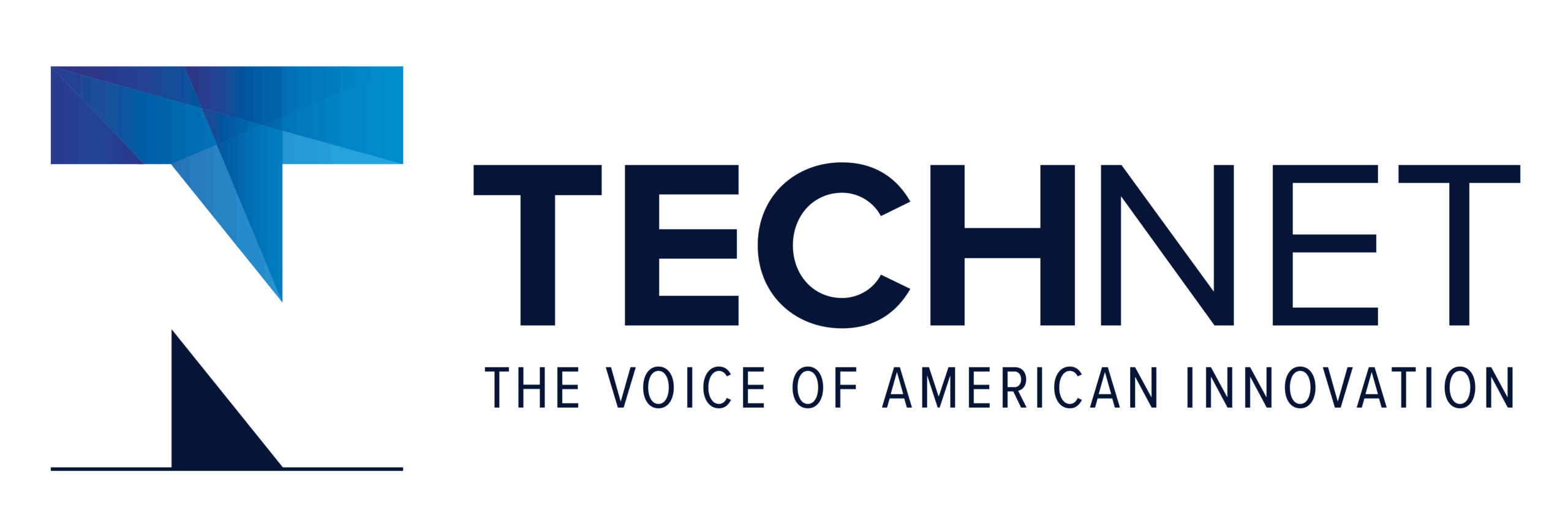The internet is a vital tool for people’s access to information and empowerment. Broadband includes several high-speed transmission technologies that can deliver broadband service, including hybrid fiber coax, fiber optic, fixed wireless, low earth orbit satellite, and mobile wireless, and is used below to refer to all of them in a technology-neutral manner. Policymakers should also support investment in broadband build-out to unserved areas and continued private investment in broadband networks and cloud services.
TechNet supports:
- Policies that facilitate continued private investment in broadband services and streamlined network infrastructure deployment, including at the local level.
- Policies that promote public/private partnerships in deploying broadband connectivity to unserved and underserved areas, as defined by the Infrastructure Investment and Jobs Act.
- Robust funding and swift implementation of policies that expand connectivity and internet access in unserved and underserved areas, as defined by the Infrastructure Investment and Jobs Act in a technology-neutral manner, including unserved and underserved anchor institutions, to facilitate online learning and the delivery of telehealth services.
- Policies that encourage and support the continuation of successful affordability programs for low-income subscribers that help ensure the seamless delivery of benefits and greater economic opportunity for those recipients, including the ability for all broadband service providers to be part of the solution, without unnecessary regulatory burdens or rate setting.
- Continued refinement of, and reliance on, the FCC’s Broadband Data Collection map.
- Policies that foster a light-touch regulatory environment and that encourage a competitive marketplace that spurs innovation and private-sector investment to ensure the United States remains a leader in high-speed connectivity.
- Policies to increase the availability of licensed, unlicensed, and shared spectrum, and mid-band spectrum in particular, for a variety of connectivity technologies.
- Policies that promote the use of secure and trusted network equipment vendors, both domestically and globally, while recognizing the complexity of modern supply chains.
- Federal policy initiatives that can expedite broadband deployment, such as “Dig Once” or “One Federal Decision” and access to federal lands and buildings, and consistent interpretation of environmental and cultural resource rules across agencies.
- Technology-neutral policies that reduce burdens on communications service providers, including easing restrictions on rights of way, speed cell tower siting and permitting, and prohibiting excessive pole attachment charges by some municipalities and co-ops, so that broadband buildout can expand rapidly.
- Tax policies that impact deployment of broadband infrastructure at both the federal and state level which are competitively neutral among all providers of broadband infrastructure and the services they provide so as to not competitively disadvantage one provider over another.
- Policies that promote broadband adoption and digital literacy, including digital navigator programs.
- Policies to encourage the development and commercialization of next generation communications technologies, such as Open RAN, AI-Native networks, and 6G.
- Policies to promote the development and adoption of AI-enabled networking to improve resilience, bolster security, and optimize network management.
- Federal legislation that reflects the principles of net neutrality and a fair and open internet without heavy-handed regulation, and on a consistent, national basis, preferably passed by Congress.
- Safeguards against intermediary liability.
- Policies that provide a safe and secure user experience and promote free speech, while responsibly addressing the use of internet platforms to spread disinformation and malicious threats.



